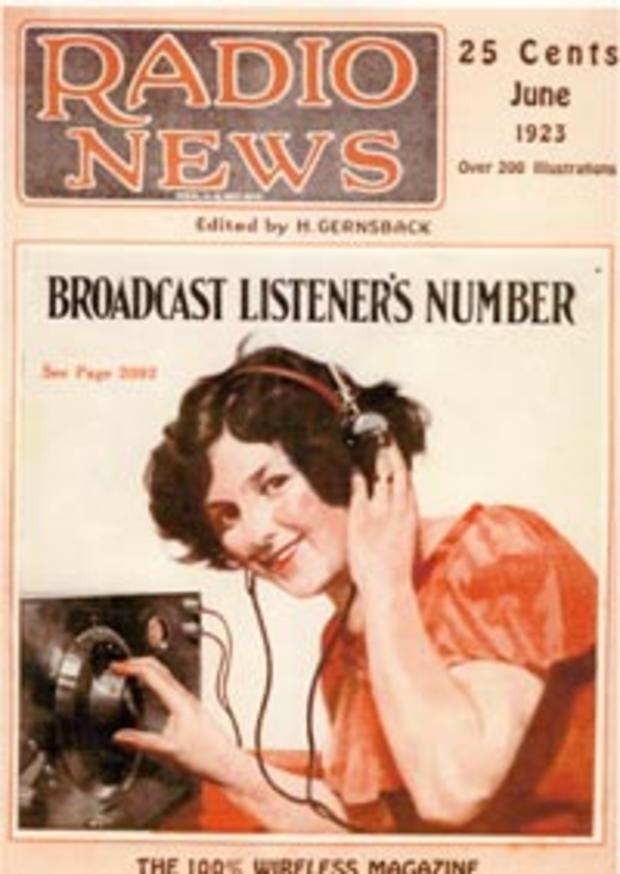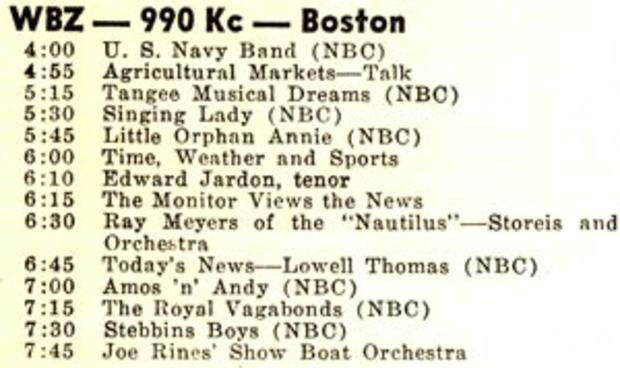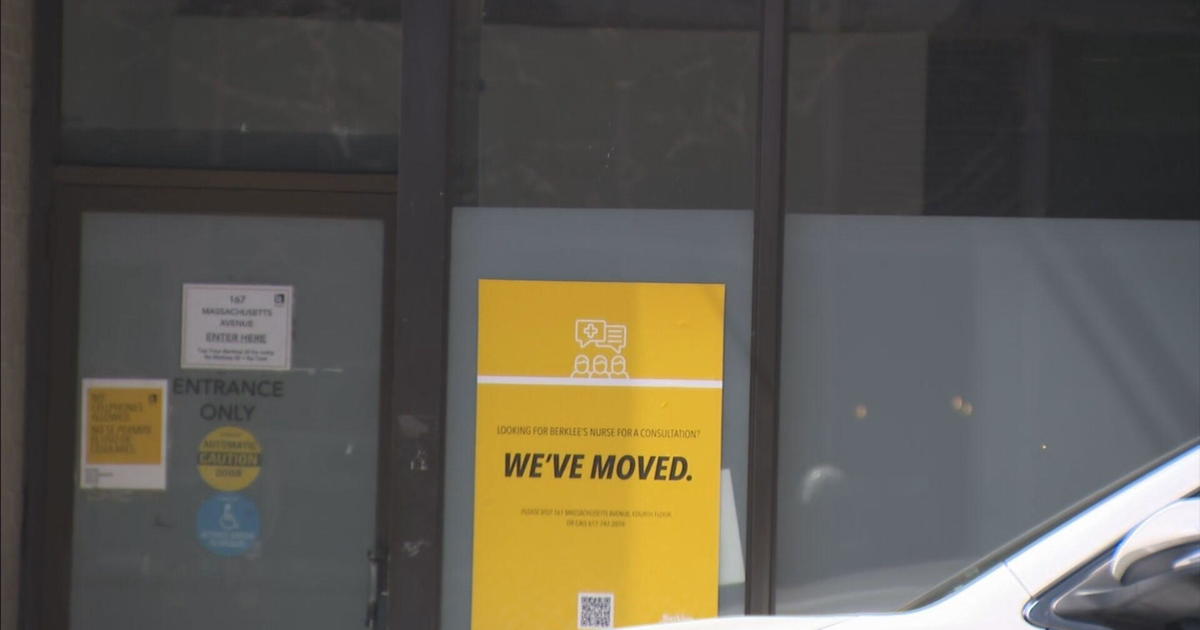A Look Back On The History Of WBZ NewsRadio
Commercial radio began in 1920, in cities like Detroit, Pittsburgh, and Medford Hillside MA. There was no FCC yet — broadcasting was supervised by the Department of Commerce. Greater Boston's first station was 1XE, later known as WGI; it was keeping a regular schedule by May of 1921. WBZ came along in September of 1921, the first station to receive the newly created "commercial license." However, what made a station "commercial" was still being debated. Herbert Hoover, the head of the Department of Commerce, wanted radio to be educational and non-commercial, and some stations did try to operate that way, using volunteers to do the announcing and provide the entertainment. But throughout 1922-23, more stations went on the air, and there was greater competition.
The listening audience, which had at first been happy to hear almost anything, now expected a certain standard of quality in the programs. But raising those standards was going to cost money. Early radio stations had always struggled with how to generate revenue — whether owned by an individual or by a corporation, somebody had to pay the electric and telephone bills. Being non-commercial was a nice idea, but it wasn't very practical. Because station owners wanted to hire professional announcers and bring in some big-name performers, they decided it would make sense to begin accepting advertising. The decision was controversial at the time, and many newspaper and magazine columnists expressed their displeasure; but having sponsors helped many radio stations to afford an up-grade of their programming.
If you were listening to WBZ in the early 20s, you would have noticed several things. For one, WBZ was not in Boston yet. It operated from the Westinghouse plant on Page Boulevard in Springfield. You would also have noticed that the station was not at 1030 on the AM dial. In fact, like most stations back then, it moved around quite a bit. When WBZ went on the air in mid September 1921, it was at 360 meters, or about 830 kilocycles. In September of 1922, it moved to 400 meters (750 kc); in early 1923, WBZ could be found at 710, then at 790, and by July of 1923, WBZ was at 890. Also, while today's WBZ has 50,000 watts and can be heard in a number of states, the WBZ of 1921 had about 100 watts and could barely be heard in Boston. Even several power boosts didn't solve the problem, so in February of 1924, WBZ opened a Boston studio, at the Hotel Brunswick (at the corner of Boylston and Berkeley Streets). By November of 1924, the Boston studio had become a separate station, using the call letters WBZA. The stations moved around the AM dial some more, with WBZ spending time at 900 and WBZA going to 1240. Station power increased too, from 2000 to 5000 watts by 1926. Then, in 1927, the Federal Radio Commission (which became known as the FCC in 1934) was created. One of its most important jobs was putting an end to the chaos caused by stations jumping all over the dial. In November 1928, WBZ was moved to 990 AM, where it would remain till 1941. That year, the FCC finally moved WBZ to the place it occupies today, 1030. And the one other change from back in those early years– in 1931, WBZ's call letters were swapped with WBZA — the Boston location had become much more important, so it took the WBZ calls, and Springfield took WBZA.
And that's how it all began. As you will see, WBZ has long been a pioneering station, and it's our pleasure to pay tribute to the people who have made it all possible. You'll be able to look at rare photographs of some early announcers and performers, learn more about the people who have entertained and informed you over the years, and even hear what WBZ has sounded like in various decades. So enjoy the trip through WBZ's history, as we take you from 1921 all the way up to the present day.
More WBZ History:
Brief History Of WBZ Radio | 1920's | 1930's | 1940's | 1950's | 1960's | 1970's | 1980's | 1990's | 2000's





